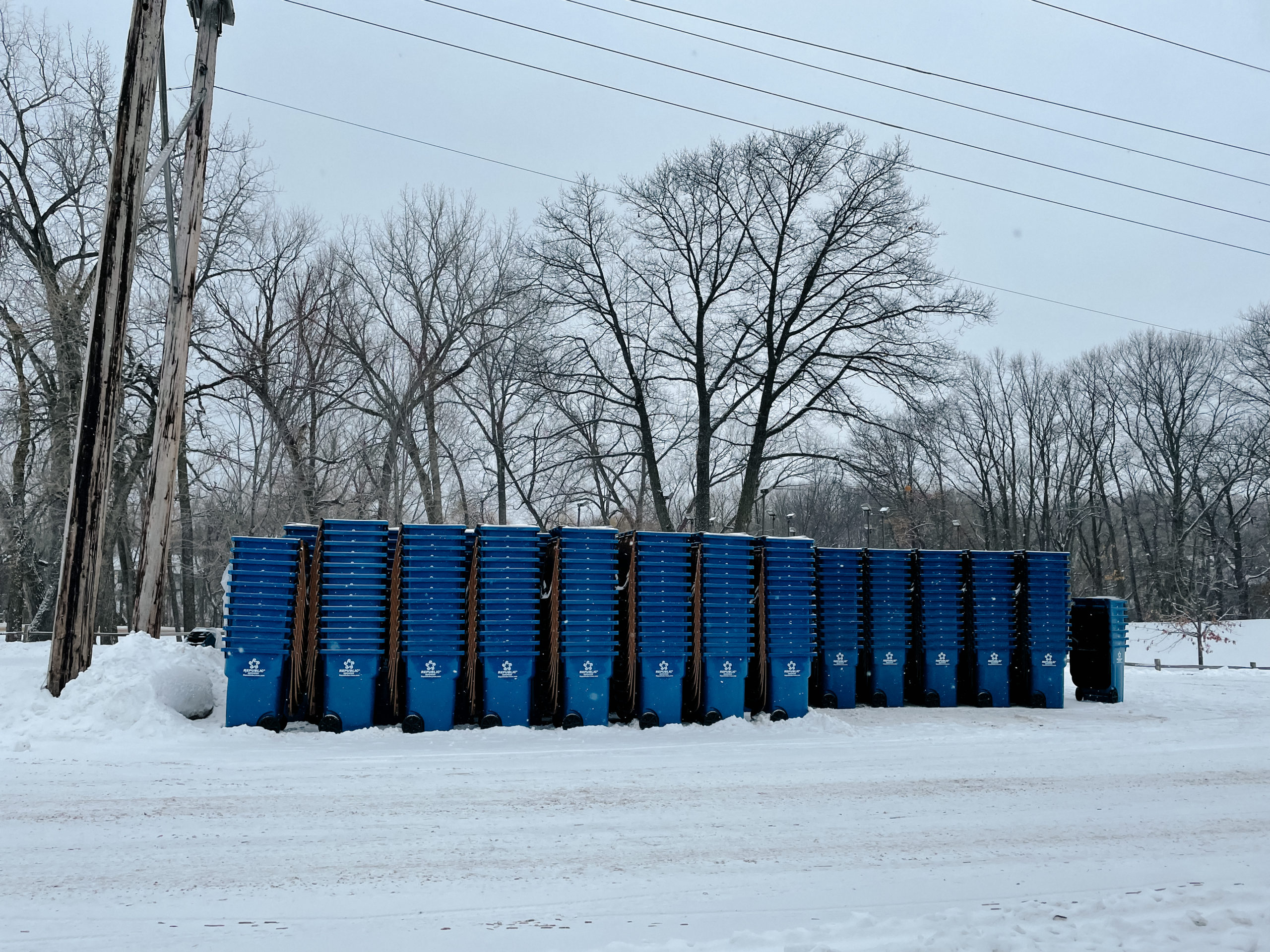Whose holiday season wasn’t upended by the omicron variant?
Whether you canceled plans with family or tested positive for Covid-19, you’re probably feeling a bit of frustration as we enter another year of masking and monotony.
As I think about what it would take to really end the pandemic (more vaccinations, more boosters, more testing, etc.), I feel the same frustration as I do when I see a roommate put an aluminum can in the trash bin again.
There’s the sense that I’m doing what it takes to make a difference–wearing a mask, getting a booster shot; or, recycling waste that can be recycled–but not everyone else is. And my individual actions just aren’t enough.
As Covid-19 has raged, so too has the climate crisis. But Covid-19 and carbon emissions have more in common than you might think– and their solutions are linked, too.
Scientific problems without scientific explanations
As Emma wrote last week, one of the biggest barriers to reversing the ill effects of climate change is the scientific jargon we use. Simply put, most of the population won’t understand words like ‘mitigation’, ‘carbon neutral’, and ‘unprecedented transition’ without additional explanation. Using this terminology can shut non-scientific audiences out of important climate conversations.
Similarly, the Covid-19 pandemic has introduced a now-dreaded vocabulary of scientific acronyms and jargon to make your head spin: antibodies, PCR, mRNA, antigen, and so on.
Using scientific jargon when we know that the general population doesn’t understand it is ineffective– and it also leaves room for misinformation to creep in.
Research from Pew Research Center indicates that the US is woefully behind in science education. While a long-term solution to our science illiteracy should prioritize more effective science education, climate change isn’t waiting for future generations. We must change how we communicate about problems that have scientific roots now, moving from relying on overly complex jargon to effectively communicate with the general public.
Collective action for an individualistic society
Perhaps the most common reason that people don’t recycle is because they don’t think that it’s worth it. Why go to the hassle of finding a recycling bin for a single plastic water bottle?
A similar pattern of thinking has been applied to various public health measures. Among the young and healthy, many think that wearing a mask or getting vaccinated just isn’t worth it.
The truth is that individual actions–like recycling a water bottle or wearing a mask to the grocery store–aren’t enough to stop climate change or a global pandemic. Confronting these challenges requires collective action and buy-in from not just individuals, but governments, corporations, and more. As Grace discussed in an article about climate refugees, polycentric governance would enlist actors at every level of power, from local governments to international institutions. This is exactly the kind of approach that we need to face societal challenges.
But apathy for the ‘small stuff’ represents an individualistic attitude that is a barrier to real social change. It’s true that one more plastic water bottle in a landfill won’t be the tipping point that makes climate change irreversible. But when we see recycling a water bottle or wearing a mask as a personal burden rather than a small piece of a larger puzzle–our piece of the larger puzzle–we ignore the true, large-scale nature of our most pressing problems.
Is there hope?
Beating Covid-19 might require taking a few lessons from climate activists. As the effects of climate change become more real, climate activists like Zahra Biabani are sharing climate optimism and encouraging us to look at progress that is being made to slow and reverse climate change.
What would public health optimism look like? Perhaps we need to celebrate those who overcame doubt to get vaccinated. Or, perhaps we need to focus more on the incredible scientific breakthroughs that made Covid-19 vaccines available in record time.
Better scientific communication and public health messaging is crucial. So too is the fight against misinformation.
As we think about how to approach public health and climate challenges, we can’t lose sight of the importance of both our individual and collective action.
- College Football, Ariana Grande, and Water - September 3, 2023
- Livestock and Land Use: How Are We Feeding The Planet? Impactfull April 2022 - April 19, 2022
- What Does Voluntourism Look Like? A Case Study in a Cambodian Orphanage - March 28, 2022
